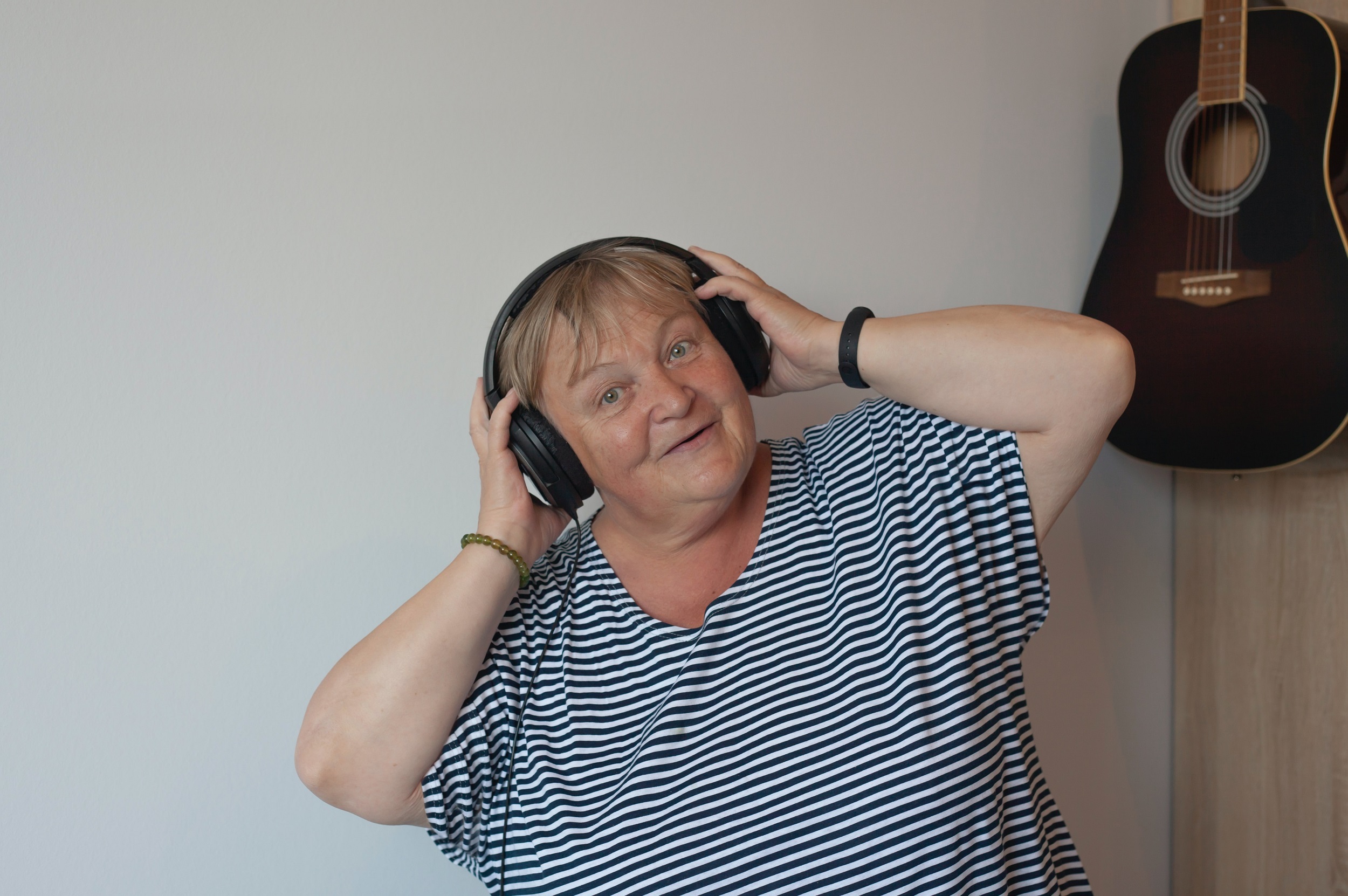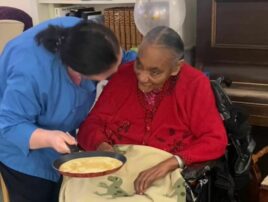
Friday 2nd September 2022
Listen up
Dr Fiona Costa is an Ambassador for our sister organisation Faith in Later Life. A research fellow at the University of Roehampton, her research explores how listening to music can lift the spirits and impact quality of life for older people
Music is ranked amongst the top ten things that people find highly pleasurable. Most of us listen to it regularly, and many of us play it – or wish that we could. Life without it would be strange indeed – it accompanies so much of our lives, from the big events to the day-today. It is essential not only to our weddings and our funerals, but also to our exercise classes or our drive home from work.
Music affects us deeply. As the violinist Yehudi Menuhin said some years ago, it can reach us through every “barrier, disability, language and circumstance”. No-one is excluded from its touch.
Keen to learn more about the difference that music can make, I studied its impact on older people in care homes for my doctoral research. Results showed that music can have a significant effect on many areas of our lives: it can relieve anxiety, ease symptoms of depression, bring comfort to the lonely and bereaved, alleviate chronic pain and much more.
A participant recovering from a stroke was confused and frustrated by limited speech and movement. Each week, as we listened to his favourite music, he would fall silent and start to conduct with his good hand. He said, “You can’t feel lonely when listening to music like that”.
Others reported similar experiences...
“It takes your mind off whatever you are bothered by. It makes my brain calm, so peaceful.”

“If I’m feeling lonely, then I will feel less cut off when music is on. It’s like an old friend, just a sense of companionship.”
“When you are not well, it is very soothing, I can get into another world.”
For older people whose lives become increasingly restricted due to frailty, illness and isolation, music can be life-changing.
How can we use music in a way that achieves outcomes such as these? As a first step, we can encourage our older friends and those we care for to simply listen.
But to what music? Does it all have the same effect? Does the choice matter? I would say that the choice matters very much. We all have our own unique musical histories, experiences and preferences. We all like some things and not others. Listening to music that we don’t enjoy will annoy and irritate us, however beautiful someone else might find it. Bach and Mozart, often regarded as the musical equivalent of a ‘super food’ are not going to help someone who hates classical music.
Here are some questions to help you make a playlist with an older person:
What genre of music do you like? What music did you listen to in your teens? Do you have favourite performers, composers, instruments? What hymns or other church music are special to you? What music is associated with important life events (e.g. the first dance at your wedding) or with family? And crucially, what music don’t you like? Making a playlist and listening to it together can elicit memories and conversation and, over time, bring about some of the benefits described above.
As well as listening, it’s good to participate. Perhaps you have an older peoples’ group in your church – try and incorporate some regular singing sessions. If you have a good musician in the congregation, invite them to lead some singing. As above, choose songs that will be familiar to the group: e.g., well-known hymns (these can also be a springboard for discussion); songs from the 1940s or 50s; folksongs. Experiment, and gradually compile a song list that the group likes. If there is no suitable musician, all is not lost. Download the music and sing along together.
These are a few ideas to get started. Music is a gift from God. Let’s try and use it well and see some of the rich blessings that it can bring.
Some practical points:
• Check the volume level
• Listen for 30-45 minutes, no longer
• Make it a regular activity, daily if possible
• Find music players that are simple to operate – e.g. Geemarc Viso Tempo Music Player/Koto Simple Music Player
• If the music elicits painful memories or feelings, remove from the playlist
• Adjust the mood of the music – if anxious or agitated, choose more calming music
• Some will be more responsive to music than others
For more ideas on how to make a playlist, see: www.playlistforlife.org.uk
More resources to help older people flourish in their faith

Hymns We Love
Faith in Later Life Ambassador Pippa Cramer tells how a hymn-based ministry to older people at her church helped to inspire the Daily Hope, the free phone line which has offered spiritual comfort to many during the pandemic

NEW EDITION Brain and Soul Boosting
Our updated and refreshed small-group resource is designed to deliver cognitive and social stimulation for older people, including those with dementia

































